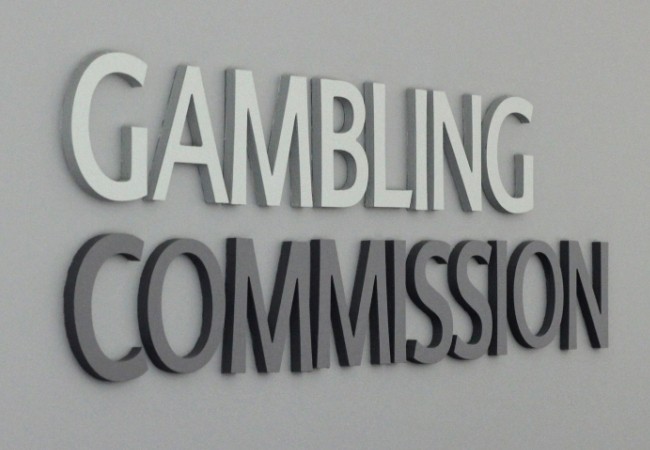By Gavin Mackintosh-
The Gambling Commission has today emphasised its commitment to reducing gambling harms as analysis of existing data indicating the link between problem gambling and suicide was published.
The published reports are part of the Commission’s research programme for the National Strategy to Reduce Gambling Harms and were commissioned by GambleAware. It reveals a worrying connection between problem gambling and suicidal thoughts or attempts.The survey conducted was cross-sectional in design, and the Commission said the data cannot be used to establish temporal sequencing in problem gambling and suicide, nor causality.
It makes reference to depression and mental disorders as underlying factors of problem gambling, adding to that experience of substance dependence and experience of stressful life events, as part of the triggers to problem gambling, later establishing a connection between gambling and suicide thoughts whilst avoiding to declare a definite causal link between the two.
The research was based on data from the Adult Psychiatric Morbidity Survey in 2007 and found that 5% of problem gamblers had attempted suicide in the previous year. The research also found that 5% of people who had attempted suicide in the previous year were problem gamblers, with a further 5% classed as ‘at risk’ gamblers.
This trend persisted after other factors such as mental health and substance abuse were taken into account. 19% of problem gamblers had also thought about suicide in the previous year. In response to the disturbing findings, the Commission has imposed stronger requirements on how gambling companies must identify and interact with at risk customers, and provide detailed guidance in support of those requirements.
REMEDIES
The Commission has set up wider proposed remedies to tackle the growing issue of problem gambling. It plans to use its powers to take action where gambling companies, and key people that work for them, fail to protect consumers from harm or take accountability – alongside issuing penalties of £19.6million for social responsibility breaches and anti-money laundering failings. Compliance – Undertaking over 3,000 compliance assessments over three years to ensure operators are protecting consumers.
It will also be evaluating how products are offered and marketed to consumers, and taking action to remove high risk products from the market. The Commission will also issue warnings against products which undermined recent restrictions to FOBT machines.
The findings showed that problem gamblers had thought about suicide (19.2%) and one in twenty (4.7%)
had made a suicide attempt in the past year. These rates are far higher than those for at-risk
gamblers (4.9% and 1.2%) and those with no signs of problem gambling (4.1% and 0.6%).
Problem gamblers were more likely than the rest of the population to be male, younger,
single, living in rented accommodation, and have few qualifications.
They had higher rates of impairment, poor mental health and substance dependence, and exposure to a range of stressful experiences, including debt and homelessness. It concludes that the association between problem gambling and suicidal thoughts/attempts remains strong. However, the report cautiously states that is not possible to conclude from these analyses that problem gambling causes suicide and self-harm, the results do show that problem gamblers are a vulnerable group warranting targeted support who are more likely than others to have suicidal thoughts and to harm themselves.
A further forthcoming report is set to examine the same data set, focusing in on the role of social and community-related factors, in particular the potential mediatory role that loneliness may play in associations between problem gambling and suicide. Whilst the report seems to establish some connection between gambling and suicide, it also highlights limitations to firm conclusions that deny any definitive conclusions permitting causal conclusions to be confirmed. These are limitations which
It says that demonstration of a causal link between experience of problem gambling and
subsequent suicide is complex, takes time, and is difficult to establish definitively.
VERIFICATION
Age and identity verification will also be conducted to provide further online protections and ensuring that online operators evidence their actions to raise standards. It also plans to call for evidence on a potential ban on credit card usage for online gambling. It said that in addition to regulatory action, it will further partnership working and research . The Commission plans to collaborate with partners to identify how the recommendations to put in place greater support for those who have been bereaved by suicide can be implemented.
With the help of further research, it plans to measure and prevent suicides linked to gambling.
Support the development of care pathways to deliver support for those experiencing gambling harms at an earlier stage.
Neil McArthur, chief executive of the Gambling Commission, said:
“This research is based on data from 2007 but nonetheless the findings clearly show a connection between suicide and gambling, something that has a real and devastating impact on people’s lives. Whilst further research and more timely data collection is essential, we are taking further action now to protect people from the risk of gambling harm.
“As a result of this research, the Commission and Samaritans will work together to bolster the existing requirements on gambling businesses to identify those at risk and take action to address and reduce harm.
“However, progress cannot be made by us alone, we need to work together to implement the priorities outlined in the National Strategy to Reduce Gambling Harms, and the key recommendations of this research. This is vital to ensuring we have the best research, prevention and treatment services available for vulnerable individuals, their families, friends and communities.”
The work programme which the Commission and Samaritans have agreed to develop will include guidance to sit alongside the Commission’s requirements for the gambling industry to ensure operators are responding appropriately to risks around suicide.
In addition, the gambling support charity GamCare will pilot an extension to the National Gambling helpline hours to 24 hours a day for a period of two years to better support vulnerable customers. This pilot will be funded by GambleAware and comes as a result of this research”.

